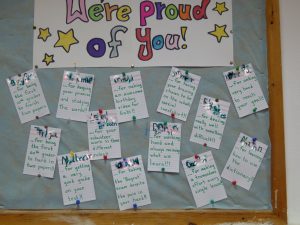
Raise your hand if you have high school students in your EFL class who:
* have a shockingly limited vocabulary.
* have trouble matching upper case / lower case letters (which makes using the electronic dictionary much harder).
* you suspect can’t really decode.
* still seem surprised (STUNNED) that you expect them to sit down and be ready for a lesson with actual pencils, notebooks, and books when the bell rings.
* take one look at a text and give up immediately – they can’t even look at it, they totally believe they can’t deal with it. They don’t even want to try.
Hmm, it seems we may face some of the same problems with our struggling EFL students in high-school.
The same students we are supposed to prepare for their national final exams…

“But this bridge will only take you halfway there–
The last few steps you’ll have to take alone”.
From “This Bridge by Shel Silverstein”
I visualize most of my teaching work as a bridge that can lead the students up to the point where they are able to take the last steps alone and be independent. The students take the hand that I have offered and we walk together. That’s why I quote this poem so often on my blog!
However….
There is a problem when it comes to these students.
A BIG problem.
These students aren’t even on the bridge and many of them won’t simply take my hand and let me show them the way. In fact, they have to prove they are right in saying they unable to learn and won’t succeed by resisting help. It’s as if they haven’t heard the maxim “If you are in a hole, stop digging”!
I believe my first job is to get such students on the bridge.
Reading Comprehension strategies are useless to a student who won’t try.
The students know they are weak students, don’t lie to them or praise them in a way that isn’t true. RIG THE SETTING FOR SUCCESS, BUT DON’T LIE! Make sure there is “evidence” as to why the student was praised.
Here are some of the things I do in class to get the students to “step on the bridge” and feel that it is worth giving reading comprehension tasks a try:

Naomi’s Photos
Disappearing texts:
I create very simple basic texts on the board from some “tale” a student in class shares. I write the tale in English, even if the student tells it almost completely in mother-tongue (eliciting words from the other students as much as possible). I focus on expressing a sincere interest in what happened to the student. Like this text, for example:
What Happened to Sara This Morning?
Sara got up at 06:15.
She left the house at 07:15.
Sara didn’t take an umbrella.
When Sara arrived in Yehud it was raining hard.
Sara got wet.
Sara wants to call her Dad.
By erasing words, having students fill in the relevant missing words on the board in response to basic “WH” questions, I get the students to focus on the text and the words. They know the answers because they were involved in the process of creating the “text”. I finally erase the ENTIRE text and ask WH questions about it. The students can deal with it!
Answering in complete sentences is not the point! If students can answer a “when” question with “07:15” and a “who” question with “Dad” (and not vice a versa!) then I have a good reason to praise them. They are reading and answering questions!
Note: A visual explanation of how to use the disappearing text method with all students can be found in Jason Renshaw’s post, here: Going Going Gone

Naomi’s Photos
“Chopping” Real Exam Papers
The students know as well as I do that their final exams won’t have self-created texts on it. Bringing in a real exam paper from a previous year, chopped into “bite-sized” pieces, makes it easier to “swallow”.
Each paragraph of the text is pasted on a separate page, with only the questions related to that paragraph pasted below it. So now the text is chopped up into several short pages.
On page one there may be only one question but on page two we can show the students that THREE WHOLE QUESTIONS can be answered based on SIX measly lines!
That is much less intimidating than seeing the whole text and a long page of questions. Particularly if you highlight the “WH” question words, names and numbers in the text.
A student doesn’t need to answer all the questions to get a high-five – remember? We’re talking about students who wouldn’t even start working on a text! Lay on the praise for every question answered. Make your check marks extra big!

Naomi’s Photos
Divide the Dictionary Work (include the teacher!)
Many of these students gave up on their electronic dictionaries very quickly. Like any tool, you need practice in order to use it quickly and well, yet they won’t touch it. By writing unknown words from a paragraph on the board and dividing the work of looking them up, the students can be convinced to start the laborious process of typing the words they are in charge of. It is slow work for them because some students have trouble matching lower and uppercase letters and they have to copy every single letter, one at a time. However, the more they do it the easier it will get.
It’s important that the teacher shows that he/she is also contributing to the joint effort and fills in some of the translations. While it’s good for morale, that’s not the point! The teacher chooses to translate the words that have several meanings and writes only the suitable one. The students do have to learn to deal with such an issue, but only after they have begun moving along the “bridge”!
Create your own version of a “Proud of You” board!

I know that most teachers don’t have the option of having a wall devoted to praising like I do. I don’t know what you can do instead, but I’m sure you’ll think of something.
“The last few steps you’ll have to take alone” (Shel Silverstein)


















